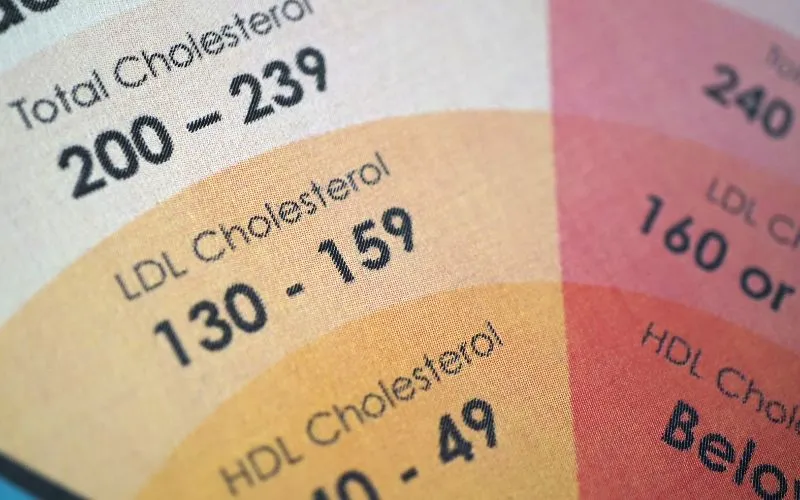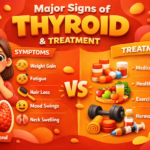Each person’s body contains both good and bad cholesterol. The body needs healthy cholesterol to operate appropriately and generate vitamins. High amounts of poor cholesterol can restrict blood flow in your arteries, resulting in persistent heart issues. Read on to learn about some home remedies by cardiologist in Dwarka, Delhi at Doctors’Hub to control cholesterol that you should incorporate into your diet to live a healthy lifestyle.
Importance of controlling cholesterol
Controlling cholesterol is important because high cholesterol levels can lead to heart disease and stroke. Cholesterol is a waxy, fat-like substance that the body needs to function correctly, but too much cholesterol can build up in blood vessels and cause plaques. These plaques can narrow and block arteries, making it harder for the heart to pump blood. It can lead to high blood pressure, which is another major cause of heart disease.
Tips to control cholesterol with home remedies
These are some of the effective tips by heart doctor in Delhi to control cholesterol with home remedies:
Coriander seed-infused water
Drinking coriander seed-infused water in the morning can help reduce bad cholesterol while increasing good cholesterol. Coriander seeds contain antioxidants and vitamins, including folic acid, vitamins C & A, and beta-carotene, which may help lower cholesterol levels. Some research suggests that coriander seeds may help lower LDL (bad) cholesterol levels.
Preparation
- Boil one teaspoon of coriander seeds in water for approximately two minutes
- Strain the water
- Let the water cool overnight
- Drink the filtered water in the morning.
Eat Flaxseed
Flaxseed may help lower cholesterol levels. A study found that eating 4 tablespoons (30 grams) of flaxseed daily decreased LDL (bad) cholesterol by 15% in people with peripheral artery disease. Flaxseeds are a good source of omega-3 fatty acids, especially alpha-linolenic acid (ALA), which may help lower cholesterol levels, reduce blood clots, and improve heart health.
Other benefits:
- Improving heart health
- Boosting digestion
- Reducing cancer risk
- Improving blood sugar
- Achieving optimum weight
- Preventing chronic diseases
- Reducing blood pressure.
Increase the fibre intake.
Soluble fibre can help lower blood cholesterol levels by binding to bile acids, which are made from cholesterol to digest fat. Soluble fibre is found in foods like Beans, Oats, Flaxseed, Oat bran, Kidney beans, Brussels sprouts, Apples, and Pears.
Fruits that contain fibres:
- Banana
- Guava
- Orange
- Peach
- Pear
- 2 apricots or plums
- 1/2 mango, etc.
Protein food that contains fibres:
- Black-eyed peas
- Chickpeas
- Black, kidney, lima, navy, pinto, and soybeans.
Exercise daily
Regular exercise can help improve cholesterol levels by lowering LDL (bad) cholesterol and triglycerides and increasing HDL (good) cholesterol. It can also help reduce plaque buildup in arteries and improve circulation.
Recommended exercise:
- Swimming
- Bicycling
- Yoga
- Brisk walking
- Low-impact cardio workouts.
Increase omega-3 intake
Omega-3 fatty acids may help improve high-density lipoprotein (HDL, or “good”) cholesterol levels, but they may also increase low-density lipoprotein (LDL, or “bad”) cholesterol levels.
Found in foods like:
- Fatty fish, including salmon, mackerel, sardines, and anchovies.
- Nuts and seeds like flaxseed, chia seeds, walnuts, and soybeans.
- Non-animal sources like spinach, Brussels sprouts, pasture-raised eggs, and eggs enriched with omega-3s.
Drink green tea
Green tea includes catechins and other antioxidants that may reduce LDL and total cholesterol levels. A 2020 study found that higher green tea consumption was associated with lower LDL cholesterol levels in humans.
Green tea is naturally low in calories and contains less caffeine than black tea and coffee. Most people can drink green tea daily without side effects, but some may experience sleep disturbances if they drink large amounts or consume it late in the day.
Consume more garlic
According to some research, eating one clove of garlic daily, or 3–6 grams (g), can reduce cholesterol levels by 10%. Garlic has antioxidant properties that help lower cholesterol levels. It also helps to control blood pressure and sugar levels.
Benefits of garlic:
- Fighting bad cholesterol: Garlic fights bad cholesterol, which increases the risk of cardiovascular disease.
- Increasing good cholesterol: Garlic increases good cholesterol levels.
- Preventing plaque buildup and blood clots: Garlic can prevent plaque buildup and blood clots.
Stop smoking
Quitting smoking can improve your cholesterol levels by increasing HDL (good cholesterol) and decreasing LDL (bad cholesterol). HDL helps remove LDL from the bloodstream, which can lower the risk of heart disease. Within a year of stopping smoking, your chance of developing heart disease is reduced by half.
Other benefits:
- Improved blood circulation and lung function
- Lower risk of blood clots
- Slower buildup of plaque deposits
- Improved health of blood vessels
- Reduced risk of heart disease and death.
Avoid drinking alcohol
Light to moderate drinking may increase HDL cholesterol, but the risks of drinking alcohol outweigh any potential benefits. Many experts recommend that drinking more than moderate amounts of wine, beer, or liquor can have a detrimental effect on health, including elevated cholesterol levels. Females must drink less than one drink per day, and males must drink two drinks per day.
Healthy alternatives:
- Green tea includes catechins and other antioxidants that may reduce LDL and total cholesterol levels.
- Red and purple grape juices may provide some of the same cardiovascular advantages as red wine.
- Peanuts, blueberries, and cranberries contain resveratrol.
Anyone with high cholesterol must make specific lifestyle modifications if they wish to live a healthy life. Ensure your diet does not include animal fats or other hazardous fats, as these promote the creation of lipids absorbed by the blood.
For the best results, combine these home treatments for high cholesterol with 10 to 20 minutes of cardio-based activity every day. If your cholesterol levels are unstable, talk to your doctor before beginning any home treatment or workout plan.














1 Comment
Diabetic Diet Chart for Indians for Better Blood Sugar Control - My Doctors Hub
[…] obesity, controls cholesterol and helps in maintaining a healthy […]